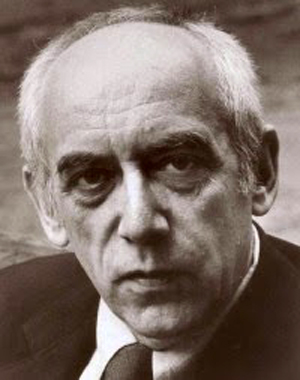
A 1997 discussion of Edward Sagarin (aka Donald Webster Cory) with Donald Beckerman
by Stephen O. Murray
November 1, 1997.
Recalling that Donald Beckerman once told me over dinner in Bangkok that he went to graduate school with Edward Sagarin, I sought greater detail on his visit to San Francisco (his first since 1960).
He could not recall what the class was (probably some criminology one), sometime ca. 1960–71 (at NYU), but he remembered that he had felt Sagarin looking at him (cruising him) across a seminar circle at him all through the term. After the last class, Sagarin told Don that he had been “observing” Don and would like to get to know him better. Someday, he would tell him something about himself. Don does not know how he knew, but he blurted out “That you’re Donald Webster Cory?” Sagarin was not fazed and acknowledged the equation.
I asked, “Did he have his way with you?” Don said that Sagarin was not his type (or, indeed, many people’s type—misshapen, nearly humpbacked). And Don wasn’t Sagarin’s main type (young black male) either.
Peter Dodge was a close friend of Sagarin and made his apartment available for Sagarin’s assignations. Sagarin was also friendly with Wardell Pomeroy, and Don talked to Pomeroy and Sagarin about a project to establish a gay presence in bars, hiring a professional to connect gay men with the health department for STD testing, syphilis in particular being epidemic. The health department (Lindsay’s) backed away.
Don and Sagarin exchanged visits. Although he does not have any remaining impression of Sagarin’s wife, he remembers that she was there—there being a relatively large, well-appointed apartment in a middle-class Brooklyn neighborhood.
Don feels that Sagarin was a sad man. He was very homosexually promiscuous even having renounced homosexuality up until his heart attack in bed with a black hustler. Don has the impression he stopped then, whether from fear of death or fear of the disgrace of dying in such compromising circumstances.
Don received an M.A. from the New School in 1961 and was a graduate student at NYU from then until 1974, when he opened a restaurant. He took a lot of classes but could not concentrate on them. He thinks he had what is now identified as attention deficit syndrome. He is also unable to organize writing, though he has been writing about his life in Issan (he was visiting upcountry with a boy with whom he had connected in Bangkok, when a disk slipped in his back, immobilizing him for 8–9 months; after living a few years in Germany, where he became a Quaker and found Germans to still be Nazi-like).
He never produced a thesis proposal. He did teach around New York (Brooklyn College, Fordham). He said that he was always puzzled about the relationship between real life and academic sociology. I asked if this was particularly in the case of Robert Bierstedt. He replied that Bierstedt was one example among others. There was, however, a theorist with a fearsome reputation for flunking students with whom Don had enjoyed perfect rapport, but whose name he couldn’t remember.
He was surprised that I spoke of “objectivity” (criticizing the personal bias in Sagarin’s hatchet job on Mattachine NY). I told him I am in a minority who believes it is a worthy aspiration, even if not fully attainable.
For more on Cory/Sagarin, see my chapter in in Vern Bullough (ed.) Before Stonewall: Activists for Gay and Lesbian Rights in Historical Context (Binghamton, NY: Haworth, 2002, pp. 333–343); and my 2004 article “Humphreys vs. Sagarin in the sociological study of gay movements” in the International Journal of Sociology and Social Policy 24:128–145. A facsimile of Sagarin’s 1966 dissertation, Structure and Ideology in an Association of Deviants, was published by the Arno Press in 1975.
1 November 1997
©1997, 2016, Stephen O. Murray

